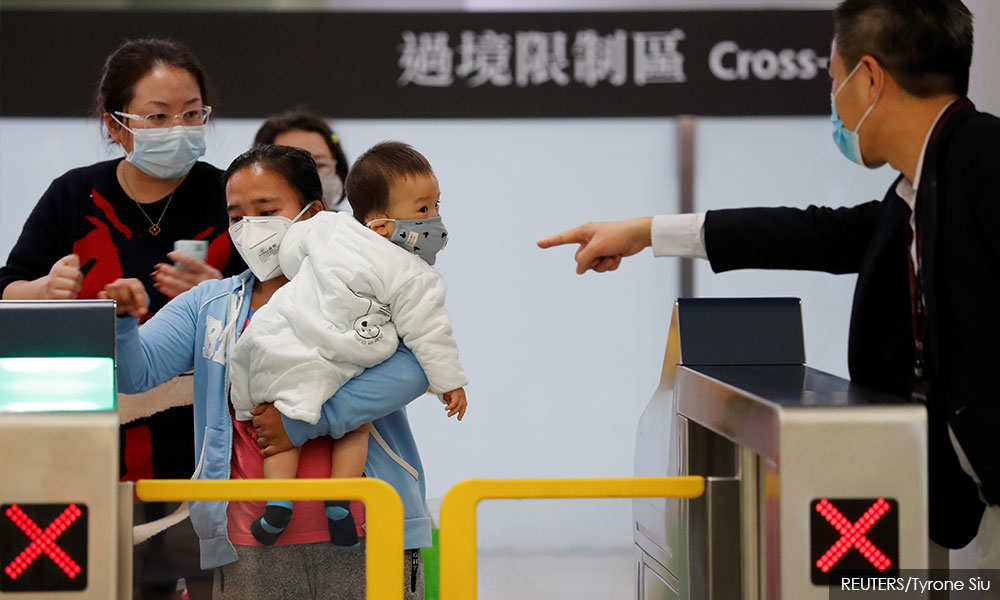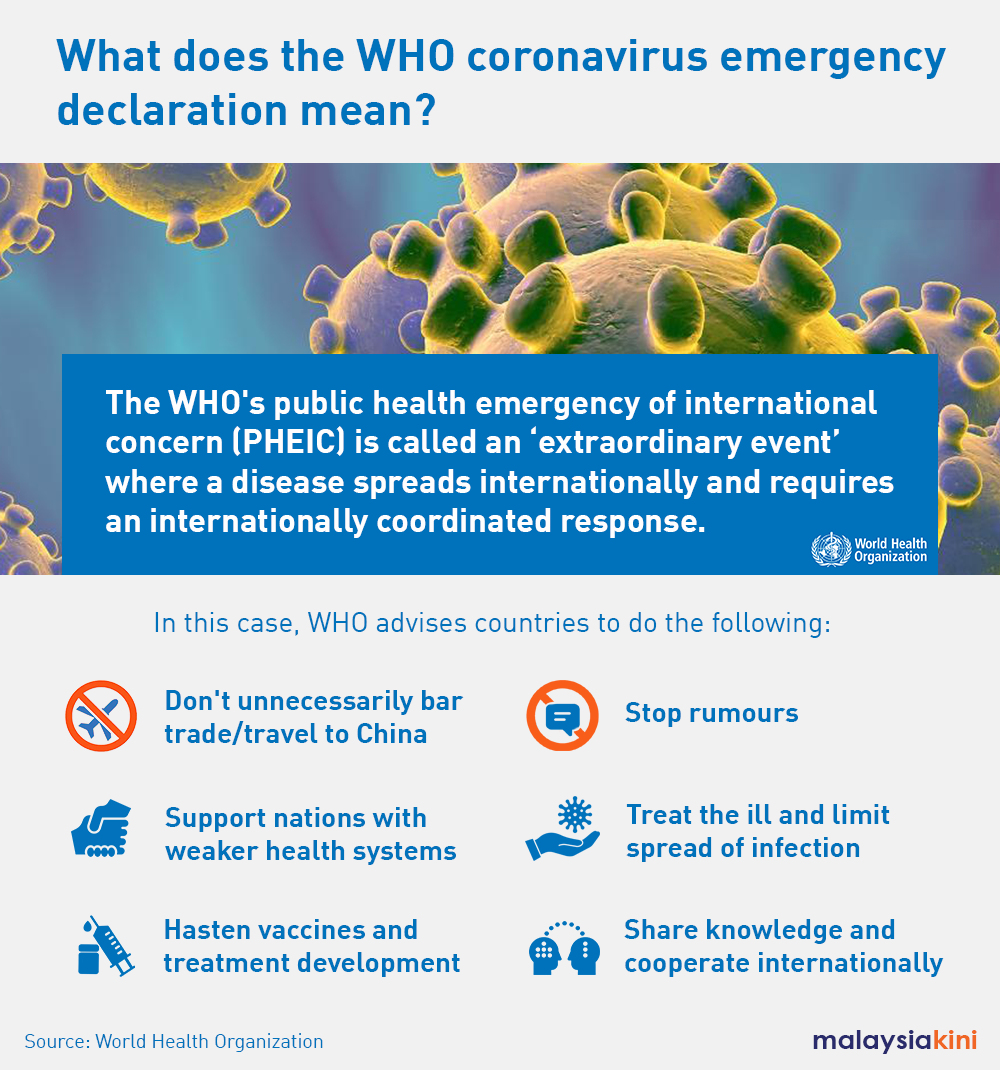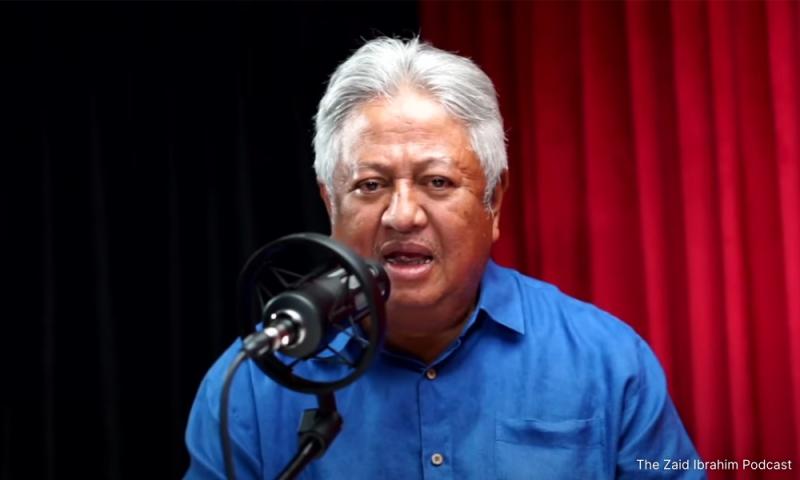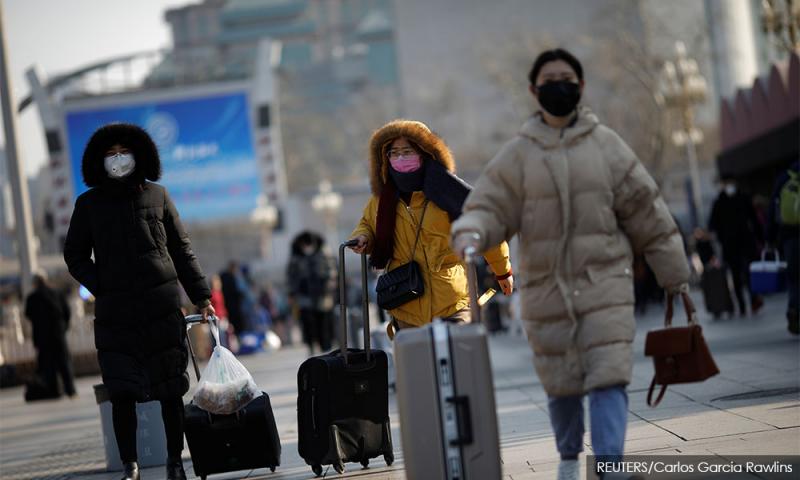CORONAVIRUS | The World Health Organization (WHO) said on Thursday it was declaring the coronavirus outbreak that has killed 213 people in China a global emergency, as cases spread to at least 18 countries.
Hubei, the province at the centre of the outbreak, reported 42 additional deaths according to the latest statement from the Health Commission of Hubei Province. It reported 1,220 new confirmed cases over the 24-hour period.
The vast majority of the more than 9,480 cases detected globally, according to the latest WHO data, have been in China, where the virus originated in an illegal wildlife market in the city of Wuhan.
But nearly 100 cases have emerged in other countries, spurring cuts to travel, outbreaks of anti-China sentiment in some places and a surge in demand for protective face masks.
In Hubei province - of which Wuhan is the capital - some 60 million people are living under virtual lockdown as China seeks to contain the epidemic.
WHO director-general Tedros Adhanom Ghebreyesus praised China's response in a news conference in Geneva but said WHO was concerned about the virus spreading to countries that did not have the resources to deal with it.
"The main reason for this declaration is not because of what is happening in China but because of what is happening in other countries. Our greatest concern is the potential for the virus to spread to countries with weaker health systems," Ghebreyesus said.
The move will trigger tighter containment and information-sharing guidelines to all countries, but may disappoint Beijing, which had expressed confidence it can beat the "devil" virus.

Experts are particularly concerned about person-to-person transmission cases outside China, which suggest a greater potential for the virus to spread further. The United States became the fourth country to report such a case on Thursday.
Officials from the US Centers for Disease Control and Prevention said the flu-like virus was confirmed in a man in Illinois, bringing the total number of US cases to six. The man's wife, who was also infected, had previously travelled to China, but he had not.
"The vast majority of cases outside China have a history of travel to Wuhan or history of contact with someone with a travel history to Wuhan," Ghebreyesus said.
Jeremy Farrar, director of the Wellcome Trust, said the WHO decision was "absolutely right."
"Declaration of an international emergency will undoubtedly sharpen governments' focus on protecting citizens," Farrar said. The needed public health measures would be a "challenge" for all countries, but would be especially difficult for lower-income countries, he added.
The virus has spread quickly since the WHO's Emergency Committee last met a week ago. But there has been no death reported outside China and neither has the virus emerged in Africa.
Italy became the latest country to declare confirmed cases on Thursday. Prime Minister Giuseppe Conte said two cases had been detected.
Economic impact
Ghebreyesus said WHO "doesn't recommend - and actually opposes" restrictions on travel or trade with China.
Nonetheless, foreign governments have been flying home their citizens from Hubei and holding them in quarantine, while airlines including Air France, American Airlines and British Airways, have stopped flying to mainland China.

Economists fear the impact could be bigger than the 2002-2003 Severe Acute Respiratory Syndrome (SARS) epidemic, which killed about 800 people and cost the global economy an estimated US$33 billion. China now accounts for a larger share of the world economy and markets have been spooked since news of the virus emerged earlier this month.
Companies have also been rattled. Alphabet Inc's Google and Sweden's IKEA were the latest big names to close China operations. China dominated US Federal Reserve chairperson Jerome Powell's news conference on Wednesday.
In China, thousands of factory workers on Lunar New Year holidays may struggle to get back to work next week due to travel restrictions, while in Hubei itself, locals and visitors are living a new reality.
"Most of the shops are closed. We cannot go out and buy food," Si Thu Tun, one of 60 students from Myanmar trapped in Wuhan, told the online news outlet Democratic Voice of Burma.
"Honestly, I have one big potato and three packs of instant noodles and some rice," he said.
- Reuters






